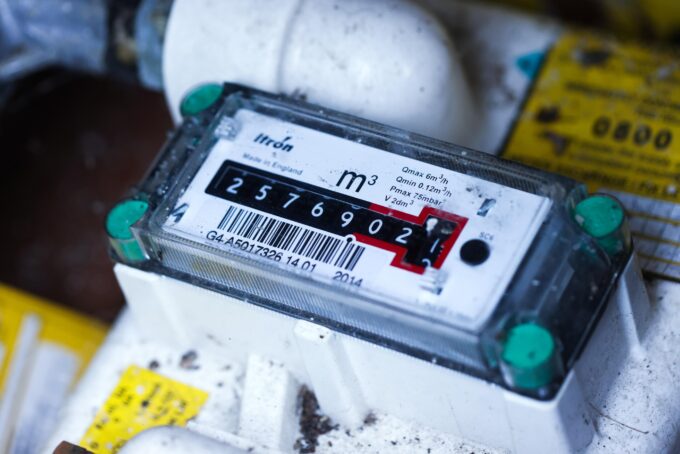Energy bills can be a significant expense for businesses of all sizes, and it is essential to manage these costs effectively to ensure that your business remains profitable and sustainable. One of the most effective ways to manage energy costs is by comparing energy tariffs. Without comparison data, it can be challenging to determine whether you are getting the best deal. Business energy comparison is an essential tool to help you understand the amount of energy you consume and how much it costs.
In today’s competitive business environment, companies must take cost-cutting measures more seriously than ever before. Energy bills can add up quickly, but with the right comparison tools and data, you can manage this expense and save money. This blog post will delve into the reasons why business energy comparison is essential for cost management and how they can benefit your company. We’ll discuss the key factors that businesses should consider when comparing energy tariffs and provide expert advice to help you navigate the world of business energy comparison. Read more on this link https://businessenergycomparison.com/.
1. Access to Competitive Energy Rates

Access to competitive energy rates is one of the key reasons why business energy comparison is essential for cost management. Energy consumption is one of the largest expenses for most businesses, and it is important to ensure that you are paying the most competitive rates for your energy usage. A thorough comparison of energy rates from different suppliers can give you a better understanding of the prevailing market rates and enable you to make informed decisions about your energy usage. Here are some ways to access competitive energy rates:
- Compare energy suppliers online to get real-time rate comparisons.
- Read customer reviews and ratings of different suppliers so you can compare the services they offer and access better deals.
- Use comparison tools and calculators to identify potential savings on your energy bills.
Regular monitoring and analysis of your energy consumption patterns and costs can help you identify areas where you can save money and optimize your energy usage to reduce your carbon footprint. This approach not only benefits your business financially but also aligns with your corporate social responsibility goals.
2. Ability to Identify Cost Savings Opportunities

One of the significant benefits of business energy comparison is the ability to identify cost savings opportunities. By comparing energy prices and tariffs of different suppliers, businesses can make informed decisions about their energy expenditure. This allows businesses to negotiate better deals with their existing suppliers or even switch to a new supplier with lower rates.
In today’s competitive business environment, cost management is critical to maintaining a profitable bottom line. By regularly conducting business energy comparisons, businesses can identify areas where they can cut costs without sacrificing quality or productivity. With the ability to identify cost savings opportunities, businesses can take control of their energy expenditure and maximize their profits.
3. Keep Up With Changing Energy Market Conditions

One of the most significant benefits of regularly comparing business energy providers is that it allows companies to keep up with changing energy market conditions. The energy market is constantly evolving, and new suppliers are entering the market while others are exiting. As a result, pricing structures, supply contracts, and energy sources change frequently. Companies that do not actively monitor and update their energy contracts may find themselves with higher prices, limited energy options, or poorly structured supply agreements that are not tailored to their business needs.
4. Take Advantage of Special Offers and Discounts
One way to effectively manage electricity costs in your business is by taking advantage of special offers and discounts. Many energy suppliers offer special rates and discounts to customers who meet certain criteria, such as signing up for a long-term contract or switching to a renewable energy plan. By regularly comparing your current energy plan with other available options, you can easily identify these offers and find the best deal for your business.
This will not only help you reduce your electricity costs but also ensure that you’re getting the most value for your money. To make the most of special offers and discounts, it’s important to consistently track and analyze your energy usage patterns, as well as stay updated on industry trends and changes in supplier rates.
5. Improve Operational Planning and Budgeting

As businesses continue to navigate the changing economic landscape, improving operational planning and budgeting has become more important than ever before. One way to achieve this goal is through business energy comparison. By using an energy comparison tool, businesses can quickly and easily determine which energy provider offers the best rates and terms for their specific needs. This information can then be used to create more accurate and effective operational plans and budgets, as businesses are able to project their energy costs more accurately.
Furthermore, energy comparison can help businesses identify areas where energy usage can be made more efficient, allowing them to save money and reduce their carbon footprint at the same time. Overall, incorporating business energy comparison into operational planning and budgeting is a critical step for businesses looking to improve their cost management strategies and remain competitive in today’s fast-paced business environment.
6. Identify Methods to Reduce Energy Consumption
One of the most effective ways to manage the costs associated with energy is to identify methods to reduce energy consumption. Conducting an energy audit can provide valuable insights into where the most significant energy costs are coming from and identify areas where improvements can be made. The following are the ways to reduce energy consumption:
- Utilize natural light whenever possible.
- Take advantage of automation or smart home technologies.
- Upgrade insulation, windows, and doors.
- Install programmable thermostats to regulate temperature settings.
- Invest in high-efficiency appliances and equipment.
- Monitor energy usage and plan for peak demand times.
- Encourage employees to be conscious of energy usage.
Adopting these methods can not only lead to significant cost savings but also contribute towards corporate social responsibility and environmental sustainability.
In Conclusion
Business energy comparison is crucial for cost management and can help companies save a significant amount of money on their energy bills. With the rising energy costs and competitive market, it has become essential for businesses of all sizes to compare energy tariffs and switch to a more cost-effective plan. By partnering with an experienced energy broker or using online comparison tools, businesses can effortlessly compare energy plans from different suppliers and make an informed decision.









